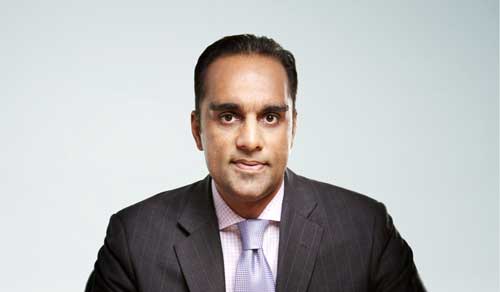Many people die at 25 and aren't buried until they are 55. So said Benjamin Franklin, that famous statesman, inventor, and wit.
Of course, Franklin maintained his physical and mental agility well into his eighth decade, while most of his 18th Century peers never lived to face the indignities of advanced old age. By contrast, the average American born today can expect to live well past 80.
The challenges presented by aging populations extend far beyond North America. The world is facing a situation without precedent: soon, the elderly will outnumber children as a proportion of the global population. Today, 8.5 percent of people worldwide are 65 years old or older. According to a National Institute on Aging (NIA) study, this percentage could leap to nearly 17 percent of the global population by 2050 (1.6 billion).1 How can we help seniors remain independent, healthy, and active – and also control the cost of care? It is a question being asked by loved ones, healthcare providers, and insurers everywhere. In the United States, where the long-term care (LTC) insurance market continues to struggle to achieve sustainability, finding a solution is urgent. New technologies may provide the answer.
Case Study: K4Community
The tech company K4Connect has developed a particularly promising solution targeting the senior living industry. Installed in elder care facilities, K4Community brings together the latest smart home automation, health and wellness tracking technologies, concierge services, and social engagement tools in a single platform. The goal? Provide a simple, easy-to-use system that works on any mobile device, tablet, or personal computer and can help older adults stay connected and engaged.
K4Community provides access to a number of important services through users simply tapping a button on a tablet from any location, be it an easy-chair or a bedside. Smart home automation helps facilitate the activities of daily life, from turning on the lights to automatically adjusting the home to a preferred temperature. The software also collects data continually, enabling the system to detect inactivity, open doors, and other signs of physical or cognitive decline.
Such automation is likely to assume ever-greater importance due to a looming shortfall in professional caregivers. Many U.S. adults intend to “age in place” or remain in their homes. Yet research from the Harvard Joint Center for Housing Studies in 2017 suggests we are not ready, projecting a national shortage of caregivers and a growing burden on unpaid family members to assist elderly loved ones. In the U.S. alone, employers absorb an estimated $40 billion annual cost from lost productivity as employees must leave work to care for elder parents and loved ones.
Technology Could Help Fill the Gap
Consider this: Isolation is another primary concern among the elderly, but tech features optimized for older adults allow easier and safer calling and messaging so that they remain connected to their loved ones. K4Community has built-in call-lists and is designed to foster communication among friends, family, and the community. The technology sifts through vast amounts of data to help older adults live simpler, healthier and happier lives. These analytics are also communicated to administrators of senior living communities to improve energy efficiency, address building management issues, and otherwise improve operations.
K4Community further incorporates wearable technology and health and wellness apps to promote activity and fitness by monitoring biometrics such as heart rate, calorie intake, and/or daily steps. This feature has been designed specifically for seniors to encourage healthy competition and keep users active longer.
Designing Apps for Older Ages
Technologies like K4Community could provide a way forward. Of course, widespread progress is far from inevitable and no app can be a panacea. Another of Franklin’s famous quotes is instructive: “One of the greatest tragedies in life is the murder of a beautiful theory by a gang of brutal facts.” Technology use remains low among the elderly: only 42% own a smartphone and fewer still own a tablet or use social networks.
Tech companies need to address this reality head-on. K4Connect conducted numerous surveys and focus groups to learn how to adapt to an older user base with a unique set of needs. Their conclusion: It’s about more than increasing the font size. Older respondents asked for a simpler, more intuitive interface and fewer gimmicky features – every element should have a clear purpose and value. They wanted all the options available in a single location and demanded security and safety.
K4Connect fundamentally rethought how to present and structure solutions and discovered that when technology is built specifically for older adults, they value it. The company takes this so seriously that it will not offer a product or product feature if it does not provide a clear first-order value to seniors. The smart home automation features of K4Community have a 100% adoption rate and nearly one-third of residents were using additional application features when installed in senior living communities. For example, residents shared more than 5,500 photos and made 1,500 social connections using the tools in a single month.
The Next Step
K4Community is looking to expand residential communities to private homes. For LTC insurers, the implications are profound. Currently, carriers in the U.S. must confront continued reserve charges for ever-lengthening LTC claim durations and exits from writing new LTC business – or selling in-force blocks of business.
As many carriers continue to take losses or even abandon their LTC lines of business, tech innovations that enhance independence and improve the quality of life for seniors may provide a path to sustainability. RGA saw such LTC potential in K4Connect that we invested in the company through our subsidiary, RGAX – the “transformation engine” of RGA that partners with carriers and entrepreneurs to incubate and accelerate new products and services with the goal of changing the life insurance ecosystem.
Of the forces reshaping the global economy, none is so inevitable, or so rarely acknowledged, as the sheer march of time, particularly in the developed world. In the United States, for example, the population of those aged 65 or older will grow by more than 30 million by 2035 – making aging Baby Boomers the fastest-growing U.S. demographic group. Elderly U.S. adults will outnumber children for the first time in American history. It’s time to take a fresh approach to aging.



